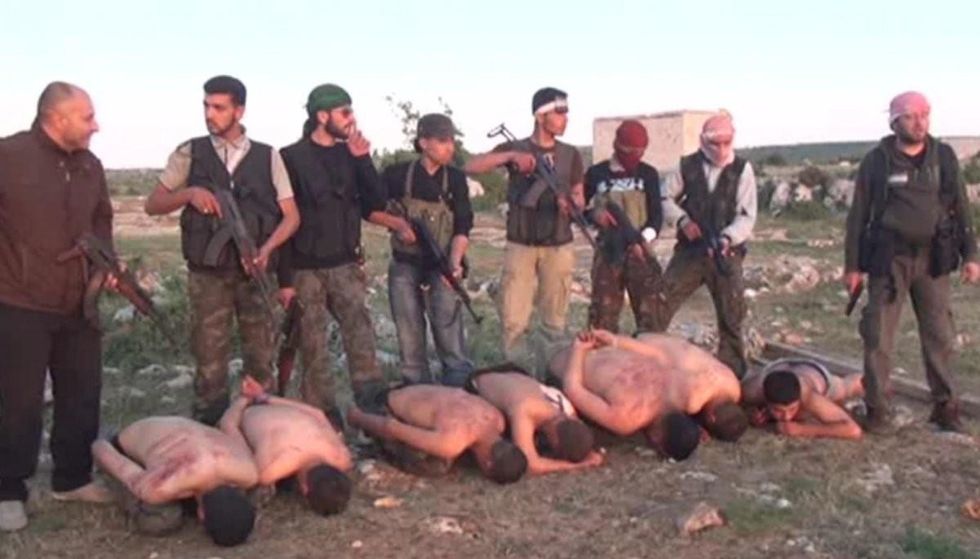Though he spent much of the week trying to convince lawmakers about the solidity of the Obama administration's case for war against
Syria, Secretary of State
John Kerry and his testimony before Congress have become the target of pushback Thursday as experts on the situation took issue with his overly "optimistic" characterization of the opposition forces inside the war-torn country.
Specifically, as Reuters reports, "Kerry's public assertions that moderate Syrian opposition groups are growing in influence appear to be at odds with estimates by U.S. and European intelligence sources and nongovernmental experts, who say Islamic extremists remain by far the fiercest and best-organized rebel elements."
Pressed by many members of the House Foreign Relations Committe on Wednesday about the dominance of Al-Qaeda-affiliated militias within the ranks of the anti-government forces and amid repeated questions about "who exactly" the U.S. would be supporting if it deepened its military involvement in Syria's civil war with military strikes, Kerry made assurances in his testimony that the Syrian opposition had "increasingly become more defined by its moderation."
However, as an explosive story on the frontpage of the New York Times on Thursday illustrates, key factions within those forces have been shown to use brutal tactics--including summary executions--in their attempts to overthrow the government of President Bashar al-Assad. Though well-documented elsewhere, the Times offered a newly surfaced video to exemplify some of the atrocities carried out by opposition during the more than two-year long civil war.
That video, smuggled out of Syria by a former member of the unit and obtained by the Times, which can be viewed below, shows captured Syrian soldiers being shot in the back of the head, following orders from a unit commander. (Warning: though redacted, video contains graphic content):
As the Times describes, the gruesome video
offers a reminder of the foreign policy puzzle the United States faces in finding rebel allies as some members of Congress, including Senator John McCain, press for more robust military support for the opposition.
In the more than two years this civil war has carried on, a large part of the Syrian opposition has formed a loose command structure that has found support from several Arab nations, and, to a more limited degree, the West. Other elements of the opposition have assumed an extremist cast, and openly allied with Al Qaeda.
And Reuters, citing experts both inside and outside of government, reviews how characterizations about the role of extremist fighters in Syria made by Kerry are being challenged by many.
While the radical Islamists among the rebels may not be numerically superior to more moderate fighters, [experts] say, Islamist groups like the al Qaeda-aligned Nusra Front are better organized, armed and trained.
Kerry's remarks represented a change in tone by the Obama administration, which for more than two years has been wary of sending U.S. arms to the rebels, citing fears they could fall into radical Islamists' hands.
As recently as late July, at a security conference in Aspen, Colorado, the deputy director of the Pentagon's Defense Intelligence Agency, David Shedd, estimated that there were at least 1,200 different Syrian rebel groups and that Islamic extremists, notably the Nusra Front, were well-placed to expand their influence.
Lastly, and pulling no punches in a piece titled, "Does Obama Know He's Fighting on al-Qa'ida's Side?", longtime Middle East correspondent for the Independent Robert Fisk last week, covered the topic by stating that, "If Barack Obama decides to attack the Syrian regime, he has ensured - for the very first time in history - that the United States will be on the same side as al-Qa'ida."
"Quite an alliance!" Fisk declared tongue-and-cheek, though made every indication there was nothing funny about the situation unfolding in Syria.
_______________________________________________



